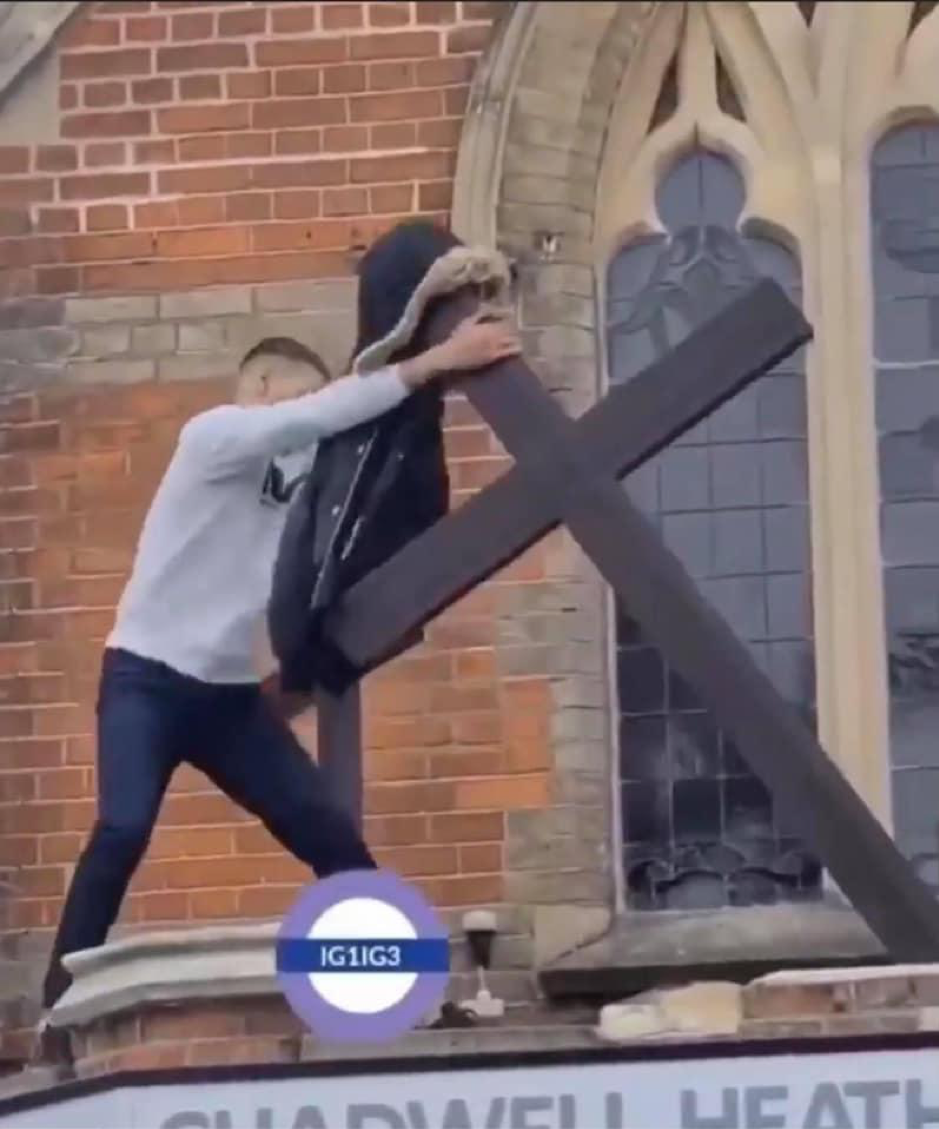
The nativity scene of a 13th-century church in Ipswich, Suffolk, was recently vandalised just four days after being erected. The figure of Joseph was decapitated, mannequins were dismembered, and decorations were strewn on the ground. The people of the city have described the perpetrators as ‘barbarians.’
The vicar of All Saints Church, the Reverend Danny Morrison, said he was
distraught and saddened. Why would someone have so much hatred and desire to ruin and destroy something that is not their property, and something that is there to express someone’s belief?
Local councillor Carole Jones in the Westgate Ward rued, “It’s hard to understand such mindless vandalism, especially as this is meant to remind people of Christmas. It is a gift to the neighbourhood as well, when people pass it and see it, it cheers them up.”
Fellow councillor Colin Kreidewolf added that“the church puts up a display every year and it is lovely, so it is distressing and concerning to see that people feel it is okay to vandalise.”
This was not the first attack on the church. In December 2018, CCTV footage captured a man grinning at a headless Joseph. However, the current damage is far more extensive.
While the incident occurred on church grounds and not inside the church itself, the destruction fits a large pattern of attacks on houses of worship witnessed across Europe. In France, the problem has become so large that French Interior Minister Gérald Darmanin pledged extra money to Roman Catholic churches in February 2022 after an outbreak of desecration, theft, and vandalism.
In Britain, over 4,000 churches were subject to burglary, vandalism, theft, and assault in 2021.
Is there a pattern to these events?
Much of it could be simple crimes with perpetrators knowing that the chances of being caught are minimal. Only 6% of burglaries in Britain end up being successfully prosecuted.
Some of the theft and vandalism affecting houses of worship may also be sectarian hate crimes. In October 2020 in Chadwell Heath, Essex, Yussef Alwali ripped the cross down from Chadwell Heath Baptist Church. He was remanded in custody and is charged with having committed a religiously aggravated offence.
In Bristol, Kevin ‘Bunny’ Crehan, 35, allegedly a far-right extremist, was jailed for a year after putting bacon slices on the handle of a door at a mosque.
Yet another explanation could be that Christianity seems to be on the decline in Britain and parts of Europe, making attacks on churches seem like less of an offence to perpetrators already lacking faith and therefore reverence for houses of worship.
In the recently published census of Britain, the number of people who identified as Christian declined from 60% to 43%, for the first time making Christians a minority in the country.
Increasing atheism could be explained by the reduced teaching of faith in schools. A German study shows a rise in atheism following the removal of mandatory religious education in schools in the 1970s. But the larger number of Britons identifying as atheists could also be the result of organised atheist groups criticising all religions.
Andrew Copson, CEO of The Humanists UK, an organisation promoting secular alternatives to religious rites, said in 2019:
It is not surprising that the number of people who have no religion has increased by nearly half over the past seven years. This is in line with other evidence that shows more than 52% of British adults are non-religious …The growth of the non-religious has been the biggest demographic shift in Britain in recent decades, and these figures underline the need for Government to tackle entrenched religious privilege in our social institutions and create fairer policies that represent everyone, regardless of religion or belief.
Churches focusing more on liberal politics than saving souls could be another explanation for the reduced number of people identifying as Christian. The Protestant Church of England is led by the Archbishop of Canterbury, Justin Welby, who has been criticised for his progressive political statements. Michael Collins of The Critic said in a 2020 article:
Under the aegis of the current Archbishop of Canterbury, the Anglican church has gone from the Liberal Democrats at prayer to a protest movement for campus causes.
While many have little or no religion, many will still consciously or subconsciously culturally identify as Christians as they put up a tree, sing carols, and exchange presents on Christmas Day.
